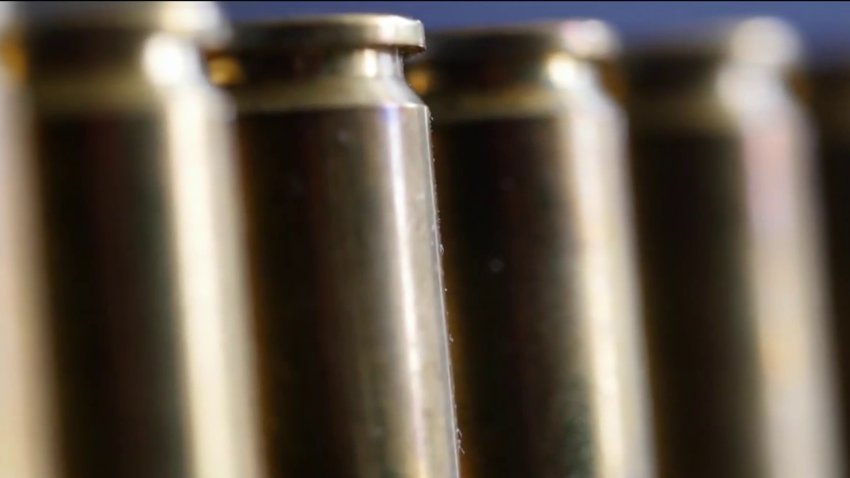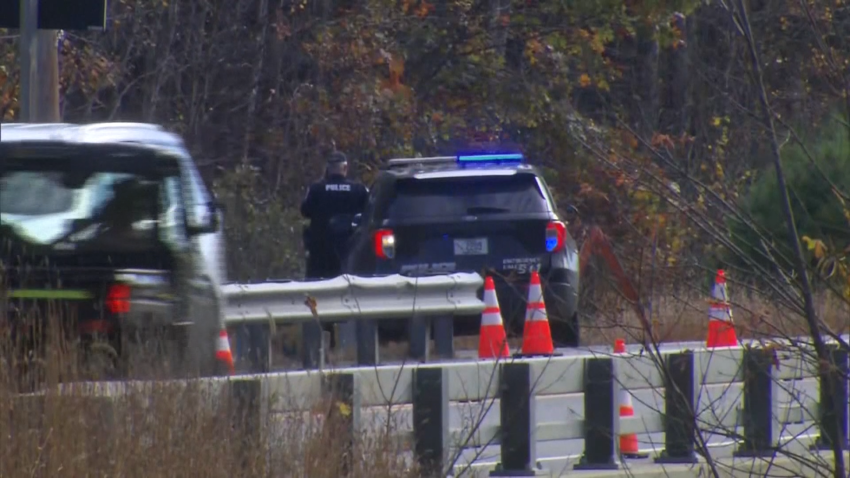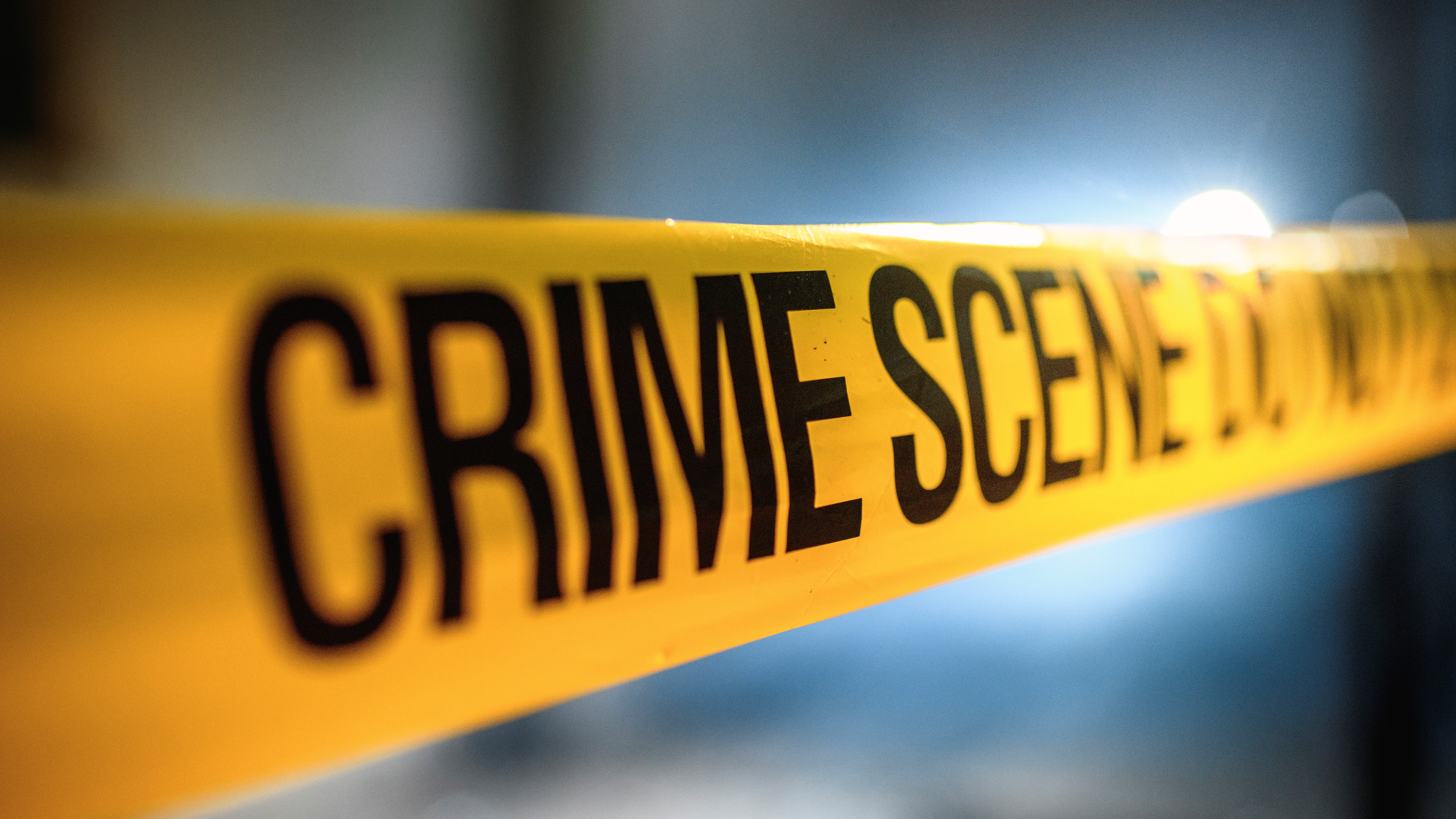Gun control advocates said that more stringent gun regulations could have prevented Robert Card from legally buying firearms.
Maine, where 18 people were killed during a mass shooting on Wednesday, does not have a “red flag” law that allows a judge to temporarily restrict a person’s access to guns.
Also known as an extreme risk law, it enables family members and law enforcement to petition a court to temporarily remove guns from the possession of someone in crisis, according to Everytown for Gun Safety.
WATCH ANYTIME FOR FREE
Stream NBC10 Boston news for free, 24/7, wherever you are. |
A document that was circulated to law enforcement officials said a suspect in the shootings, Robert Card, had been committed to a mental health facility for two weeks in the summer of 2023, according to The Associated Press and NBC News. It said Card had reported “hearing voices and threats to shoot up” a National Guard base.
The assault rifle style weapon that Card allegedly used was purchased legally in 2023, two senior law enforcement officials briefed on the matter told NBC News.
Get updates on what's happening in Boston to your inbox. Sign up for our News Headlines newsletter.
US & world news
During a press conference on Thursday morning, reporters questioned Maine Department of Public Safety Commissioner Mike Sauschuck about whether any steps were taken to make sure Card didn't have access to firearms.
"I think those are all valid questions we are looking into right now," Sauschuck responded. "But not questions that we can answer today."
Four years ago, the governor signed a law aimed at preventing a mass shooting like the one Wednesday night, The Associated Press reported. Critics said it was a first step toward stronger gun safety measures, but that the state could save more lives by doing more.
It was called a “yellow flag” law, different from the “red flag” and in a sign of the pro-Second Amendment mindset in Maine, a gun-rights group helped write the law, the AP reported. Unlike a "red flag" law, it requires police first to get a medical practitioner to evaluate the person and find them to be a threat before police can petition a judge to order the person's firearms to be seized.

The law had the support of the Sportsman’s Alliance of Maine, which assisted in writing it.
“Maine has a suicide problem that dwarfs homicide as a safety concern for us in the state,” one Sportsman’s Alliance member, John Chapman, told legislators at the time.
Cam Shannon, board chair of the Maine Gun Safety Coalition, told the AP that the shootings were the result of “weak gun laws." At a minimum, the coalition wants the state to ban assault weapons to prevent more mass shootings, Shannon said. Elected officials must "stop bowing to the gun lobby and look squarely at the face of what has happened in Maine’s second largest city,” Shannon said.
Maine is also missing other key gun regulations, according to the Giffords Law Center to Prevent Gun Violence. They are:
- Universal background checks
- Licensing for gun owners
- Most domestic violence gun laws
- Assault weapon restrictions
- A ban on large capacity magazines
- Waiting periods
- Concealed carry permits
- Regulations governing the open carry of guns
What Maine does have, Giffords says, is mental health record reporting and a law preventing a child's access to guns.
As an added step, the statute requires a mental health professional to sign off that the person poses a danger.
Michael Rocque is a criminology professor at Bates College in Maine and has studied the circumstances around mass shootings.
"I thought we were lucky we hadn't had one in Maine, because there's no reason why one wouldn't happen," Rocque said. "And here we are, talking about one of the worst mass shootings ever."
Records the NBC10 Boston Investigators obtained from the Maine Attorney General's Office shows there have been 81 weapons restrictions orders since the yellow flag law took effect in July 2020.
The majority of those — 58 incidents — have occurred this year, a surge attributed to a telehealth option being approved for a mental health expert to sign off.
"That's so important because these are time-sensitive incidents," Rocque said. "We cannot afford to wait when someone has made it clear they have the intention to harm themselves or others."
A family member of Card told NBC News he'd recently suffered from an "acute" mental health episode, which included the voices he heard in his head. The family member declined to discuss if anyone had tried to restrict his access to guns.
Based on the sparse details provided in the 81 incidents listed in state records, it is unclear if any of the firearms seizures could pertain to Card.
A spokesperson for Maine's judicial system told NBC10 Boston that weapons restrictions cases are confidential, so if there was any kind of order relating to Card, it would not be a public record.
Thirteen people also were injured in the shootings Wednesday night in Lewiston, at the Just-In-Time Recreation bowling alley and Schemengees Bar and Grille.
An arrest warrant has been issued for Card, 40, from Bowdoin, Maine, officials said. He has a military background, and state police say he is a firearms instructor.
Everytown for Gun Safety ranks Maine as 25th in the country for the strength of its gun laws.
"Though Maine has taken some steps to keep guns out of the hands of those who shouldn’t have them, state leaders must do more to prevent gun violence," said Everytown for Gun Safety.
Maine passed a permitless carry law in 2015 that allows residents to carry loaded, concealed handguns in public without a permit or background check, Giffords noted.
Proposals to require background checks for private gun sales and create a 72-hour waiting period for gun purchases failed this year, NBCNews.com reported. Other proposals focusing on school security and banning bump stocks did not pass in 2019.

Some gun control activists said they were anything but surprised about this latest tragedy.
"Why would anyone be surprised," Founder of Stop Handgun Violence John Rosenthal said. "For decades, we've had unrestricted, unregulated access to firearms, by anyone who can breathe."
Rosenthal criticized the state's lack of universal background checks.
"This is a choice -- that governors and legislators and Congress have made," Rosenthal said. "How do you know if somebody has a history of mental illness or even a felony?"
Second amendment rights advocates with organization Gun Owners of Maine, said that the issue is with mental health, not guns.
"There's a longstanding issue with separating mental health issues and gun ownership," Gun Owners of Maine president Laura Whitcomb said. "You cannot legislate evil out of the hearts of men."
Whitcomb said this tragedy was an exception to a culture of typically safe gun ownership in Maine.
"I wish that there was a law-abiding citizen who was carrying a firearm who had been able to help stop this before it escalated," Whitcomb said.



